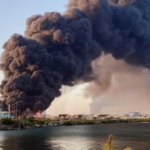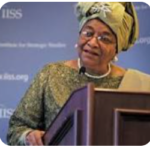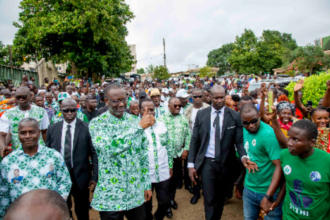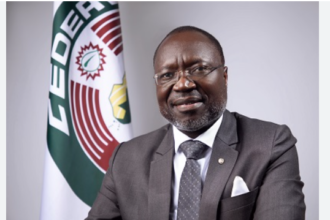By Sara Camara
Freetown, Sierra Leone – Tensions are simmering along the border between Guinea and Sierra Leone as a long-standing dispute over land and mineral rights threatens to boil over into armed conflict. Experts are warning that the situation, fueled by local grievances and the potential for exploitation by external actors, could destabilize the region.
The heart of the issue lies in the shared border region, an area rich in iron ore and other valuable minerals. While the border has historically been porous and communities have coexisted peacefully, recent discoveries of commercially viable mineral deposits have intensified competition for control.
“For years, the local populations have lived side-by-side, engaging in cross-border trade and sharing resources,” explained Mariama Diallo, a political analyst specializing in West African affairs. “However, the lure of wealth fueled by these new mineral finds has created a wedge, exacerbating existing land disputes and triggering new ones.”
Reports from the ground suggest that both governments are staking claims to the disputed territory, leading to increased military presence and heightened security measures. Local communities, caught in the crossfire, are expressing growing fear and frustration.
“We are caught in the middle,” lamented Abu Bakarr, a village elder along the border. “We just want to live in peace and farm our land, but now soldiers are everywhere, and we fear violence will erupt at any moment.”
Adding to the complexity of the situation are accusations of illegal mining activities and the involvement of foreign companies vying for access to the region’s resources. These companies, often accused of exploiting local communities and exacerbating environmental damage, are contributing to the escalating tensions.
Civil society organizations in both countries are calling for immediate de-escalation and urging their respective governments to engage in constructive dialogue. They emphasize the need for a transparent and equitable resolution that respects the rights of local communities and ensures the sustainable exploitation of resources.
“We need a peaceful and negotiated solution,” stated Fatu Conteh, director of a leading human rights organization in Sierra Leone. “Military posturing and inflammatory rhetoric will only lead to bloodshed and further entrench the cycle of poverty and instability.”
International observers are closely monitoring the situation, with several regional organizations offering mediation efforts to prevent a further escalation. However, the window for diplomatic intervention is narrowing rapidly.
The potential for conflict between Guinea and Sierra Leone carries significant implications for regional stability. Not only could it trigger a humanitarian crisis, but it could also create a vacuum for extremist groups to exploit, further destabilizing the fragile peace in the region.
The coming weeks will be crucial in determining whether cooler heads can prevail and a peaceful path forward can be forged, or whether the simmering tensions will erupt into a full-blown conflict with devastating consequences for both nations.









